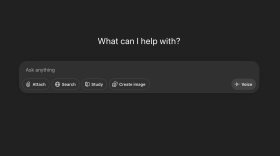COVID-19 has been hard for everyone but when schools shuttered early on in the pandemic, it became especially difficult to serve Milwaukee’s youth.
Audra O’Connell is the executive director of Walker’s Point Youth & Family Center. The organization was started in 1976 and has been working to serve runaway, homeless and other troubled kids across Milwaukee.
“If we have young people that are going through cycles of homelessness then the likelihood that they then become adults and re-enter the homeless system with their own children and perpetuate that system is pretty high,” says O’Connell. “Stopping to break that cycle and teaching them that there’s another way that we can do this and there are other options and supports available, I think we have a right to ask that for our community.”
But even before the pandemic, services for young people experiencing homelessness were not even close to meeting the problem.
She says that right now there are 16 beds available on any given night at the two shelters in Milwaukee County that serve 11–17-year-olds, compared to the over 5,000 homeless students that Milwaukee Public Schools estimates it has in its school system. O’Connell says that number only grows when you add in students in schools across Milwaukee County that aren’t in the MPS system.
“In some ways, it’s overwhelming because it does feel like a drop in the bucket but when you look at how quickly we can serve youth and ways we can get creative to help house them and make them successful, I think that’s when you see what the work our agency can do,” she says.
The biggest way the pandemic has affected that work is by isolating kids from trusted adults and making it harder to get connected with organizations like Walker’s Point Youth & Family Center. O’Connell says the majority of kids don’t call her on their own but instead a teacher, counselor or other adult in that child’s life reach out and say they know someone struggling.
“Trying to foster that relationship where they feel safe enough to say there is a problem in my home, that’s become very difficult for these paraprofessionals to see and try to bring to light to make sure that the young person is getting resources,” O'Connell explains.
O'Connell also says the center is mainly run by volunteers from different places like colleges or AmeriCorps, many of which were halted at the beginning of the pandemic. She says the center struggled to make sure they had enough hands to meet the needs of the youth.
“We only have four full-time staff who keep that shelter operational and so we rely on about 100 community volunteers, interns, graduate level interns and AmeriCorps, and so when a lot of that programming had to go away because we weren’t sure what was going to happen, that became really problematic,” she says.
But they were able to stay open and stay safe from COVID-19. It wasn’t until December of 2020 when they had their first case inside the shelter, and after a two-week shutdown the center was able to reopen again.
While finding the young people who need help remains difficult, O'Connell says they continue to keep in contact with schools and let them know that the Walker’s Point Youth & Family Center is there for anyone who is struggling.
“Going back to the schools and saying, 'We know this is a really difficult time for you guys, and it’s a really difficult time for your students, so we are here, we are staying here, we are staying open. Anytime that you have a concern about a young person, pop them our way and let us try to work with them and see if we can address their needs,'" she says.







